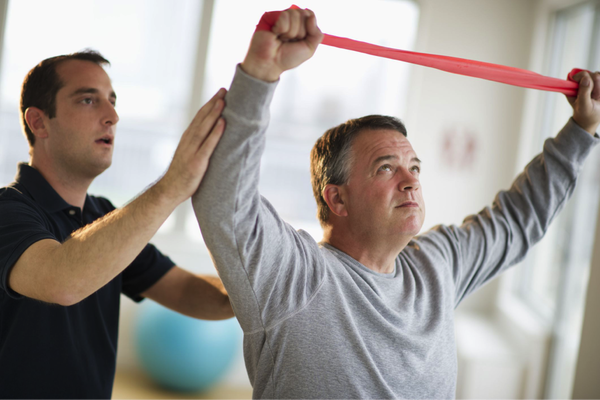Some level of memory loss and cognitive decline is a normal part of aging, though in certain instances, it can be a sign of early onset Alzheimer’s disease or another form of dementia. While there isn’t always an obvious cause for a person’s changing critical thinking ability, research suggests puzzles and games might support brain health for elderly individuals.
The benefits of puzzles go beyond potentially preventing memory loss. Read on for a breakdown of seven advantages of brain games for seniors.
What Are the Benefits of Puzzles for Aging Adults?
Why does anyone do puzzles? Whether it’s of the crossword, number, logic, or jigsaw variety, people often turn to puzzles for mental stimulation, entertainment, and distraction from day-to-day life. Brain games come in all shapes and sizes; they can be fun, entertaining, rewarding, and sometimes educational. Upon finishing a puzzle, you might feel accomplished, proud, or even like you’re a slightly better version of yourself than when you started.
When it comes to aging adults, the main benefits of puzzles include short-term memory improvement, enhanced concentration abilities, improved problem-solving skills, better reasoning and logical thinking, strengthened fine motor skills, social engagement, stress relief, and mental reward.
Short-Term Memory Improvement
Doing puzzles is one of the most effective ways to stave off short-term memory loss. The activity engages different parts of the brain and can help replenish an elderly person’s cognitive reserve, which is crucial for storing and retrieving memories.
According to Harvard Health Publishing, combining regular brain games with about 20 minutes a day of light cardio (such as a brisk walk) is the best approach to improving memory. The idea is that exercise increases blood flow to the hippocampus, the area of the brain responsible for memory storage.
Enhanced Concentration Abilities
Younger individuals often have work or school to focus on, which helps their concentration skills, but when seniors retire, they’re less inclined to engage their full attention on any one activity.
For aging adults who have trouble focusing on various tasks, puzzles can be a great way to stimulate cognitive skills, like concentration. Recent research published in the International Journal of Geriatric Psychiatry by the University of Exeter shows that elderly individuals who regularly do puzzles have sharper minds.
Puzzles take not only concentration but also dedication to a specific activity, whether it’s visual focus, mental focus, or both. Word searches and crossword puzzles are excellent for seniors, as they engage the eyes and the mind. Crosswords, in particular, call for recalling facts, which helps enhance concentration ability and memory function.
Improved Problem-Solving Skills
Aging adults don’t always come across opportunities to hone in on their problem-solving abilities in their day-to-day lives. Whether it’s deciding what to do about a broken appliance or navigating budgeting issues, people of all ages encounter everyday problems, both big and small. The ability to overcome these obstacles is a critical component of living independently.
Puzzles can be incredibly beneficial in improving a person’s problem-solving skills. They don’t have to be overly complicated either. Crosswords, Sudoku puzzles, mazes, and jigsaws are a great place to start.
According to a study published in the journal Frontiers of Aging Neuroscience, jigsaw puzzles support cognitive function by igniting the parts of the brain responsible for reasoning and problem-solving. Since you have to visualize where and how each piece will fit, it requires you to see the bigger picture in order to find a resolution. Jigsaws also encourage you to try different things and consider various solutions, which are important aspects of effective, practical problem-solving.
Better Reasoning and Logical Thinking
Reasoning and logical thinking are closely related to problem-solving, as they have to do with a person’s ability to make sound decisions. Many aging adults don’t have the chance to use logic and critical thinking on a regular basis, which is where puzzles come in.
The University of Exeter researchers also found that when people aged 50 and older regularly do crosswords and Sudoku puzzles, their cognitive function improves. With sharper brain performance and mental speed, they’re better able to perform everyday tasks that require reasoning, logic, memory, concentration, and problem-solving.
Strengthened Fine Motor Skills
The benefits of puzzles aren’t only mental—they can also strengthen fine motor skills. Research has shown that aging adults who consistently use the muscles in their hands and fingers can improve their manual dexterity.
This includes board games, jigsaw puzzles, crosswords, mazes, Sudoku, and any other activity that requires picking up small pieces, writing things down, or otherwise engaging the hands. These activities call for steadiness, flexibility, strength, visual sorting, spatial reasoning, and the ability to make small, precise movements, which are vital for retaining fine motor skills.
Social Engagement
Regardless of age, connecting with others is an essential component of an individual’s overall well-being. It’s not uncommon for seniors to become isolated when they leave the workforce or start living alone. Crosswords and Sudokus are great solo puzzles, but it’s good to participate in group activities too. Doing puzzles and playing board games with other people is an excellent way to socialize and stay engaged.
Whether it’s bridge, Monopoly, Yahtzee, checkers, or going out for bingo night, aging adults can benefit from interacting with friends and meeting new people. Working on a jigsaw puzzle together requires teamwork and cooperation. Playing one-on-one board games like chess and checkers provides an opportunity to have meaningful conversations. And teaming up in friendly competitions can spark a sense of camaraderie and solidarity. But perhaps most importantly, socializing with others over puzzles and games is just a lot of fun.
Stress Relief and Mental Reward
Doing puzzles might also help alleviate stress. Completing a puzzle, solving a riddle, or winning a board game offers not just distraction but also mental reward, which is good for seniors’ physiological health.
People of all ages often use exercise to de-stress. Though regular physical activity is recommended for elderly individuals, chronic illness, injury, or overall functional decline might present an obstacle. By providing a morale boost and an escape from day-to-day stressors, games and puzzles offer an alternative way to relieve feelings of anxiousness and worry.
How Home Health Aides Can Help Seniors Stay Engaged
We don’t call it “home sweet home” for nothing. Nearly 80% of adults 50 and older say they want to continue residing in their homes for as long as possible. For some, this means living alone, which can be a health and safety concern as mental and physical abilities begin to decline.
Alliance Homecare is dedicated to supporting elderly individuals and their families with in-home services in New York City and the surrounding areas. Our experienced home health aides services can assist with light housework, running errands, bathing, dressing, grooming, transferring, eating, exercise, and other activities of daily living (essential self-care tasks).
But one of the most important services our compassionate team offers is companionship. When living independently, many seniors lack vital social engagement and brain stimulation. With this in mind, Alliance home health aides are there to engage in conversations, read aloud, play games, and do puzzles. Knowing the joys and health benefits of puzzles, we often gift them to our long-term clients.
Our home health agency in New York is dedicated to improving patient outcomes with in-home services. The personalized, cost-effective care we provide ultimately gives individuals and their families peace of mind. Our passionate team of caregivers and healthcare professionals is here to help your loved one live safely and comfortably at home with care, support, and kindness unmatched in the industry.
We are here to answer any and all questions you may have regarding Alzheimer’s communication and the stages of alzheimers. To learn more about how our NYC caregivers help seniors stay engaged, contact us today at Alliance Homecare.
External sources:
https://www.sciencedaily.com/releases/2019/05/190516082349.htm
https://www.ncbi.nlm.nih.gov/pmc/articles/PMC6174231/
https://www.ncbi.nlm.nih.gov/pmc/articles/PMC5588550/
https://www.alzdiscovery.org/cognitive-vitality/blog/can-a-puzzle-a-day-keep-dementia-at-bay
https://www.health.harvard.edu/mind-and-mood/the-thinking-on-brain-games
https://www.mayoclinic.org/diseases-conditions/alzheimers-disease/in-depth/memory-loss/art-20046326
https://dc.ewu.edu/cgi/viewcontent.cgi
https://www.aarp.org/research/topics/community/info-2018/2018-home-community-preference.html




